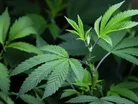These Professors Believe Marijuana Can Defeat Antibiotic-Resistant Bacteria

“It has been a long time since people died of untreatable bacterial infections and the prospect of returning to that world is worrying.”
This is the concern of Ramanan Laxminarayan, a health economist and professor. He has observed the exponential rise of antibiotic use around the world, and its negative effects on bacteria.
And he’s not the only on to notice.
[READ MORE] The Coming Crisis of Antibiotic Resistance
In fact, earlier this week, the White House called for increased investment to fight antibiotic resistant bacteria to prevent resurgent diseases once thought eradicated along with new superbugs that gain strength due to the modern penchant for profligate antibiotic use. An investment of roughly $1.2 billion, to be exact.
The proposal called for funding research into new antibiotics, increased monitoring of infection outbreaks, new resistance efforts at veterans’ and military hospitals, and efforts to curb antibiotic over-prescription.
Two professors, however, believe an alternative can be found in the natural antibiotic effects of a variety of plants. The most effective? Cannabis.

In 2008, Professor Simon Gibbons (right), who heads the Department of Pharmaceutical and Biological Chemistry at the University College London School of Pharmacy, and Professor Giovanni Appendino (left) of Italy’s Piemonte Orientale University published a study that demonstrated the ability of various chemicals extracted from marijuana (cannabinoids) to fight methicillin-resistant staph bacteria – one of the most serious and life-threatening sources of bacterial infections in the U.S.
The scientists tested chemicals from marijuana on six different strains of methicillin-resistant Staphylococcus aureus (MRSA) – including strains that are known to be resistant to traditional MRSA treatments – and found that they were just as effective at killing the bacteria as commonly prescribed antibiotics.
The cannabinoids were found to be just as effective as vancomycin – a powerful drug that is only used when other antibiotics fail.
[READ MORE] 3 Problems Doctors Face When Prescribing Medical Marijuana
Prof. Gibbons explained the remarkable findings of his 2008 study in an interview with MIT’s Technology Review.
Prof. Appendino added that the most promising cannabinoids in their study – cannabidiol (CBD) and cannabigerol (CBG) – also happen to be non-psychoactive.
With our current understanding of cannabinoids, Prof. Appendino believes there is much promise for cannabis derivatives with bacteria-fighting abilities to be used in hospital settings – where most MRSA infections are acquired.
Could marijuana’s role in health care become much more prominent in the near future?
Follow us on Twitter (@HealthcareGlbl) and like us on Facebook!
- Vaccines, Dementia & Food: The Week's Top Healthcare StoriesMedical Devices & Pharma
- Stanford: A Shingles Vaccine Could Cut Dementia Risk by 20%Medical Devices & Pharma
- Alfa Laval Hopes New Center will Help Pharma InnovationSustainability
- What Does Eli Lilly’s US$3bn Dutch Pharma Investment Mean?Procurement & Supply Chain



